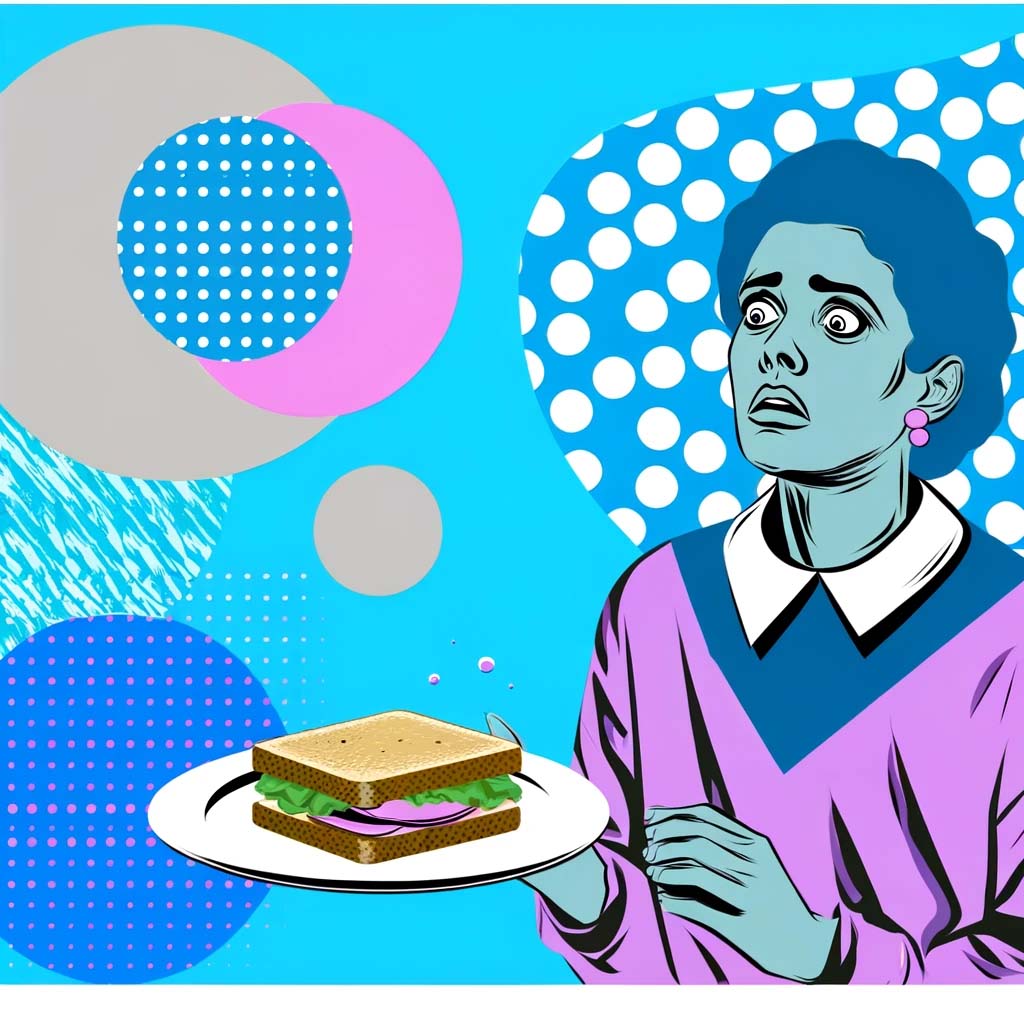Emetophobia, the fear of vomiting, can have a profound impact on an individual’s life, not just in terms of anxiety and fear, but also in its potential to influence eating habits and contribute to the development of eating disorders. Understanding this connection is crucial for recognizing the complexities of each condition and providing proper support.
How Emetophobia Impacts Eating:
- Food Avoidance: The fear of vomiting can lead individuals with emetophobia to avoid certain foods or food groups altogether. These perceived “risky” foods might include anything from unfamiliar cuisines to foods with a high chance of spoilage or perceived difficulty in digestion.
- Restricted Eating: The fear of consuming anything that might trigger nausea or vomiting can lead to a restrictive eating pattern, limiting the variety and quantity of food consumed. This can lead to insufficient intake of essential nutrients and potential health complications.
- Obsessive Food Rituals: Individuals with emetophobia might develop compulsive behaviors surrounding food preparation, such as excessive washing, cooking food to extreme temperatures, or adhering to rigid routines to minimize the perceived risk of foodborne illness.
The Link Between Emetophobia and Eating Disorders:
- Shared Core Fear: Both emetophobia and eating disorders share a common core fear – the fear of losing control. In emetophobia, the fear revolves around losing control over one’s body and experiencing the act of vomiting. Similarly, eating disorders often involve a desire to control food intake and body weight, stemming from a deep-seated fear of losing control over one’s physical state.
- Reinforcing Cycles: The limitations imposed by eating behaviors in emetophobia can inadvertently reinforce underlying anxieties. Restricting food intake or engaging in compulsive rituals might provide temporary relief from anxiety, but in the long run, these behaviors can contribute to the development or worsening of an eating disorder.
- Perfectionistic Tendencies: Individuals with emetophobia may exhibit perfectionistic tendencies in their approach to food, seeking complete control over their diet to eliminate any perceived risk. This perfectionism can overlap with the perfectionistic tendencies often observed in individuals with eating disorders.
Differentiating Between Emetophobia and Eating Disorders:
While emetophobia can undoubtedly influence eating behaviors, it’s important to distinguish it from a full-blown eating disorder. Here are some key differences:
- Primary Motivation: In emetophobia, the primary motivator is fear of vomiting, while in eating disorders, the primary focus might be weight control, body image concerns, or a combination of both.
- Severity of Restriction: While individuals with emetophobia might avoid certain foods, the level of restriction and potential health consequences might not be as severe as in eating disorders like anorexia nervosa or restrictive-type anorexia nervosa.
- Presence of Additional Diagnostic Criteria: Eating disorders are diagnosed based on specific criteria outlined in the Diagnostic and Statistical Manual of Mental Disorders (DSM-5), which include additional features beyond just food restriction or fear of vomiting.
Seeking Help and Support:
If you are struggling with emetophobia and its impact on your eating habits, seeking professional help from a qualified therapist is crucial. They can:
- Help you develop coping mechanisms to manage your fear of vomiting.
- Address any underlying anxieties or phobias contributing to your emetophobia.
- Guide you in developing healthy and balanced eating habits.
- Provide support and guidance if you are at risk of developing or struggling with an eating disorder.
Remember:
- Early intervention is key for both emetophobia and eating disorders. Seeking professional help can make a significant difference in your journey towards recovery.
- You are not alone: Many individuals struggle with emetophobia and its potential impact on their lives.
- With the right support and personalized treatment plan, you can manage your fear and develop a healthy relationship with food, reclaiming control over your well-being and enjoying a fulfilling life.
By raising awareness of this complex connection, we can encourage individuals struggling with both emetophobia and eating disorders to seek the support they deserve and embark on a path towards healing and well-being.
Disclaimer: This article is for informational purposes and should not replace professional guidance.





0 Comments